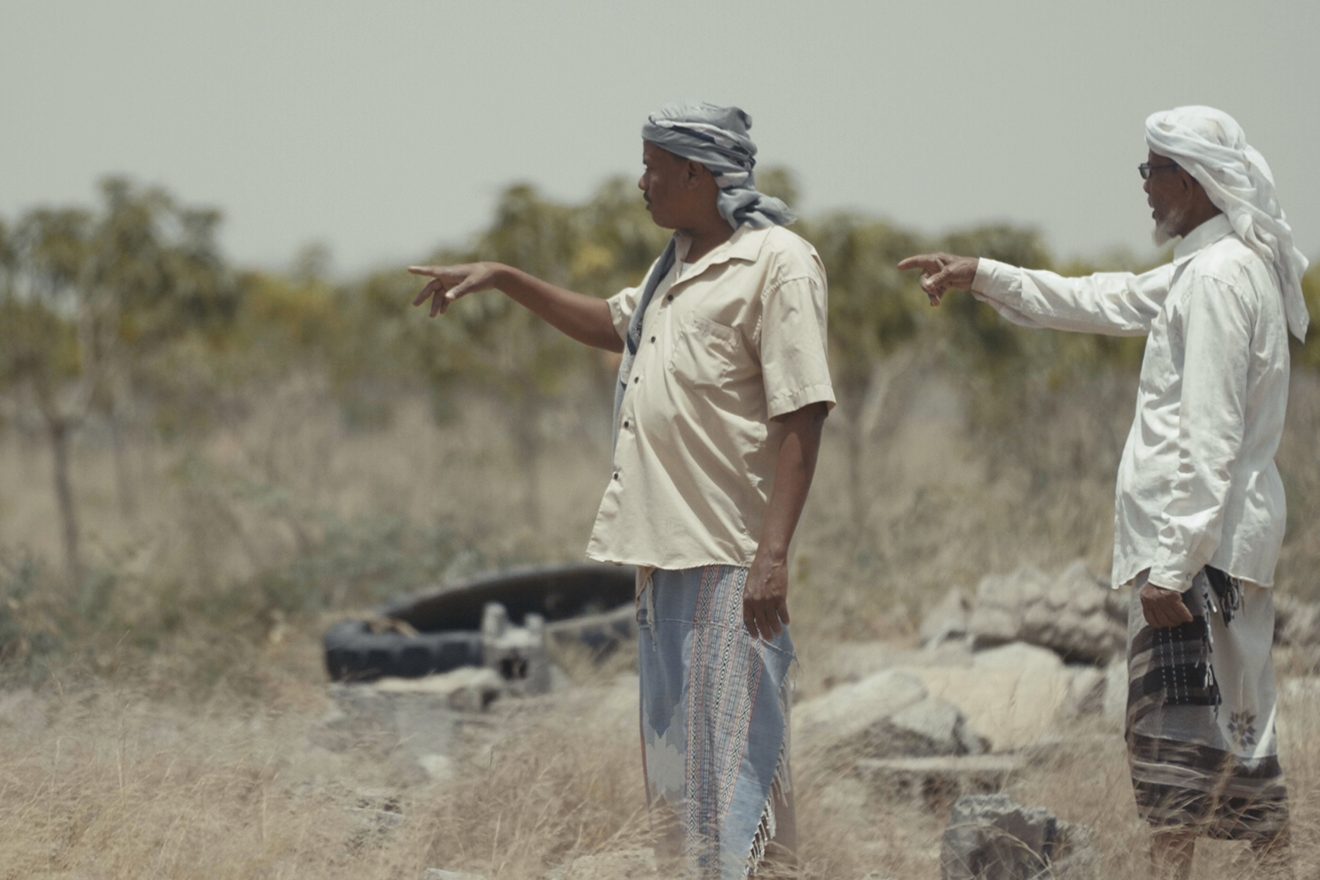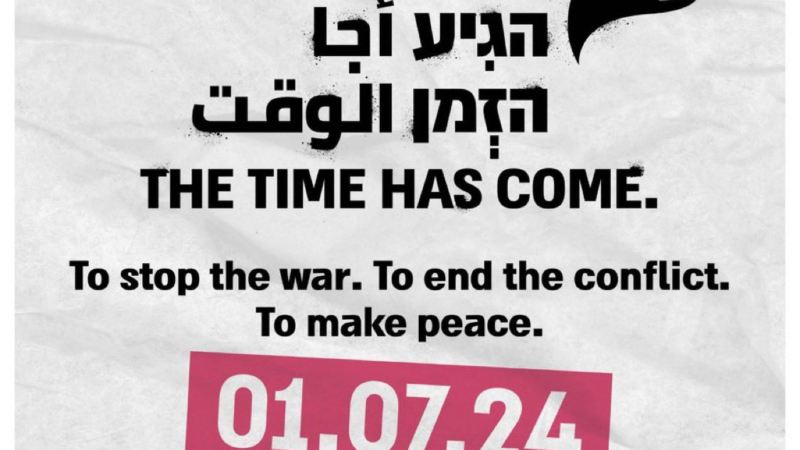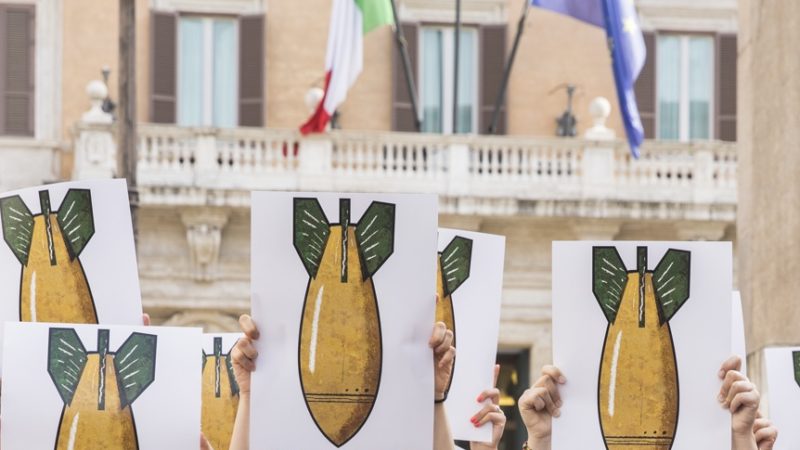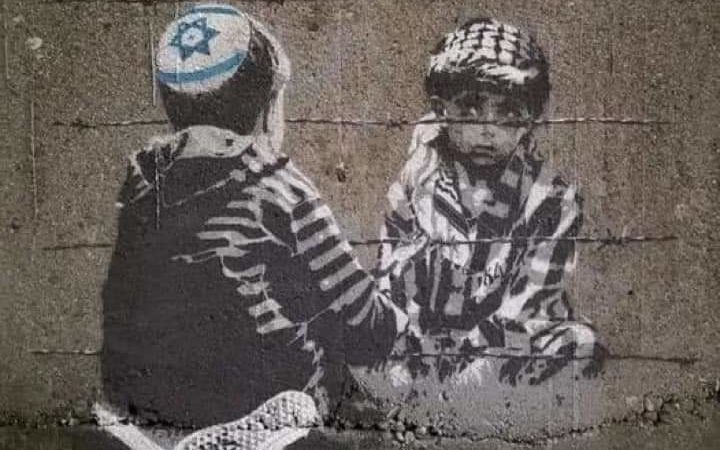“Made in Italy, Bombed in Yemen”

The Italian government and arms manufacturers’ potential responsibility for war crimes in Yemen

Today, the organizations Rete Italiana Pace e Disarmo, European Center for Constitutional and Human Rights (ECCHR), and Mwatana for Human Rights emphasized in an online event that the Italian government and arms manufacturers may be responsible for war crimes committed in Yemen by exporting weapons to the Saudi Arabia and United Arab Emirates-led coalition.
The organizations also released the documentary film “Made in Italy, Bombed in Yemen” about the civilian victims of the air strike in the Yemen village of Deir al-Hajari on 8 October 2016. The results of Mwatana’s investigation into this attack, which killed six family members, including a pregnant woman and four children, showed that the weapon used was made in Italy. The documentary was filmed in early 2020.
The organizations highlighted the role of European arms trader and governments in the ongoing conflict in Yemen, and the urgent need to stop weapons exports to coalition countries. Panelists discussed how all parties involved in the international humanitarian law and human rights violations occurring in Yemen can be held to account, and the role the international community can play in this regard.
“Governments that continue to conclude arms deals with coalition member states are legally and morally implicated in the violations occurring in our country, some of which amount to war crimes,” says Radhya al-Mutawakel, chairperson of Mwatana for Human Rights. “Italy and other weapons suppliers must immediately halt these exports, and support criminal accountability efforts for violations committed by all parties to the conflict in Yemen.”
In April 2018, the NGOs filed a criminal complaint with the Italian Public Prosecutor’s Office in Rome to investigate the criminal liability of UAMA, the body that authorizes Italian arms exports, and executives of the Italian arms manufacturer RWM Italia SpA for exporting weapons to coalition member states. A year and a half later, the prosecutor requested the case be dismissed instead of conducting a complete assessment of the facts. But the people in Yemen deserve a proper examination of Italy’s role in the airstrikes. Mwatana, Rete and ECCHR appealed the prosecutor’s decision and in February 2020, a judge was appointed to hear the case. In January 2021, the Judge’s Office for Preliminary Investigations in Rome will decide whether the prosecutor’s investigations will continue.
“It’s about time, that senior officials of arms manufacturing companies are held to account for their role in facilitating the commission of war crimes in Yemen – both on the international as well as on the national level,“ says Miriam Saage-Maaß, vice legal director at ECCHR.
The three organizations, through this online event and other joint advocacy efforts, continue to call for accountability via the accountability means in international criminal law, international humanitarian law and international jurisdictions. They demand serious investigations on the role of all parties to the conflict in Yemen and all actors contributing to the crimes committed against civilians.
“The flow of Italian made arms reaching the Saudi-led coalition involved in the conflict in Yemen, is in sharp contrast with the principles and rules of both Italian law and international norms signed by Italy,” says Francesco Vignarca, Campaigns Coordinator from Rete Italiana Pace e Disarmo (Italian Peace and Disarmament Network). “It is therefore necessary to stop the arms trade. Together with our international partners we have started legal action in this regard. At the same time we ask the government and parliament to take an immediate political decision by extending the suspension of shipments of missiles and aerial bombs which was agreed upon in July 2019 and which will expire at the beginning of 2021.”
On 11 December 2019, these organizations together with Amnesty International, Campaign Against the Arms Trade, and Delàs Center submitted a communication to the International Criminal Court Office of The Prosecutor, calling for an investigation into the responsibility of corporate and governmental actors in Italy, Germany, France, Spain and the United Kingdom. The submission described 26 coalition air strikes that research indicates may have used European-produced bombs.
The documentary “Made in Italy, Bombed in Yemen” interviews relatives of Deir al-Hajari air strike victims. They ask for justice and want those who committed, and enabled, the attack to be held to account. Ali Ahmed Jaber, whose brother, sister-in-law and nieces and nephews were killed, asks, “Is there justice in this world? If yes, show it.” Survivors share that they are too poor to repair their homes, which have been reduced to rubble. They show remnants of the weapon used in the attack and wonder why their remote village – without any known military objective – was bombed.






